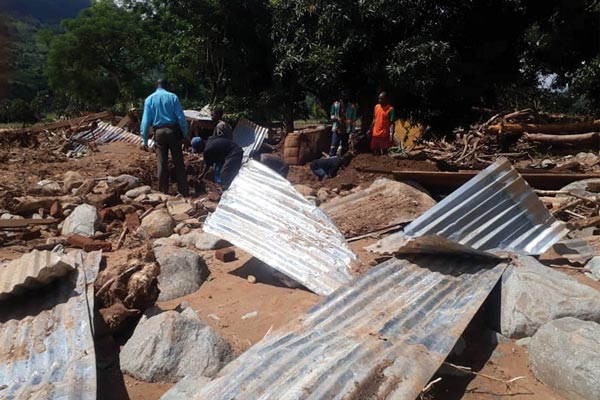
ONE year after Cyclone Idai devastated parts of Malawi, Mozambique and Zimbabwe, tens of thousands of people are still living in appalling conditions with inadequate shelter or sanitation.
Amnesty International
The inadequate and dwindling financial support for recovery programmes from the international community, and the slow pace of governments’ rebuilding efforts across the three countries has left people stranded in makeshift accommodation, at risk of diseases like cholera and in some cases without access roads.
A year on since Cyclone Idai hit the region, less than half of the US$450 million needed for relief and recovery assistance to communities affected by the cyclone in Zimbabwe and Mozambique has been secured, with just over $40 000 committed in the first quarter of 2020.
Mozambique, the hardest hit of the three southern African nations, hosted a pledging conference in May 2019 to secure support for reconstruction and long-term resilience building. The conference raised US$1,2 billion — less than a third of the requirements.
Most schools, which were damaged by the cyclone in Mozambique, have not yet been rebuilt and hundreds of thousands of children have had their education interrupted.
While most children are now back at school, teachers are struggling to provide pupils with a decent education due to lack of infrastructure and other materials.
One of the hardest hit areas in Mozambique was Sofala Province. Access to main roads is still blocked, leaving people trapped in communal shelters and relying on humanitarian assistance from United Nations agencies and others.
- Chamisa under fire over US$120K donation
- Mavhunga puts DeMbare into Chibuku quarterfinals
- Pension funds bet on Cabora Bassa oilfields
- Councils defy govt fire tender directive
Keep Reading
The government must prioritise the reconstruction of critical infrastructure to facilitate the restoration of livelihoods for the people.
In Zimbabwe, the second hardest hit country, many affected people are still living in makeshift tents in camps set up by the UN Refugee Agency.
At a regional climate change dialogue in Mutare last week, organised by Amnesty International and its partners, survivors from all three affected countries told Amnesty that they had lost their livelihoods and were continuing to rely on aid for survival.
Communities in the affected areas urged their governments to help rebuild their lives and assist then in sharing weather information through community bulletin boards and radio.











